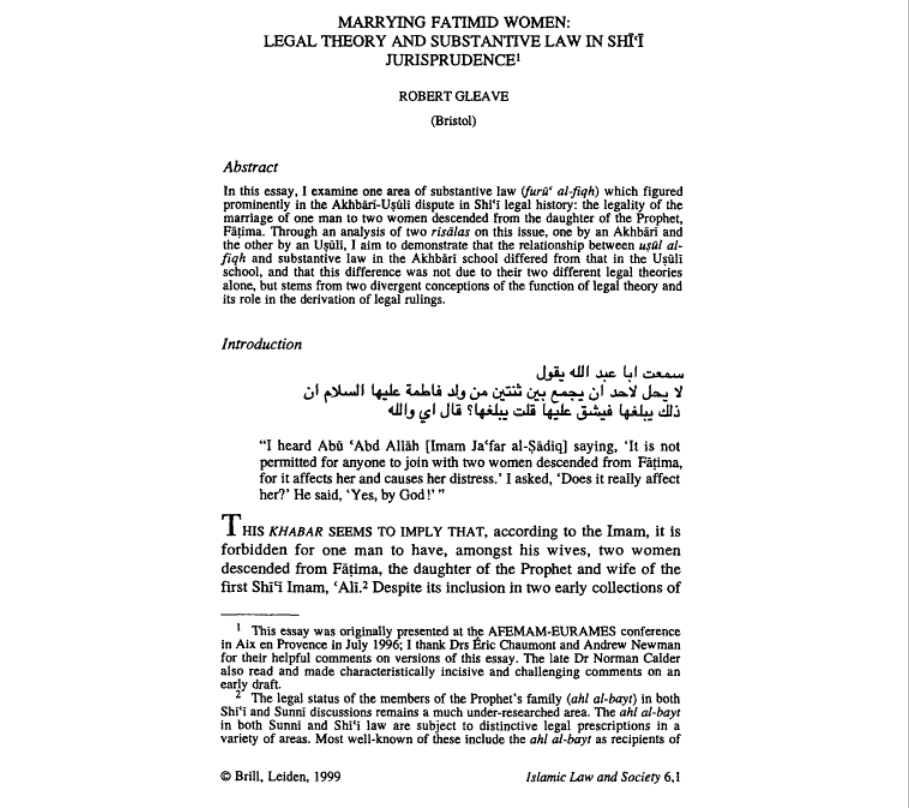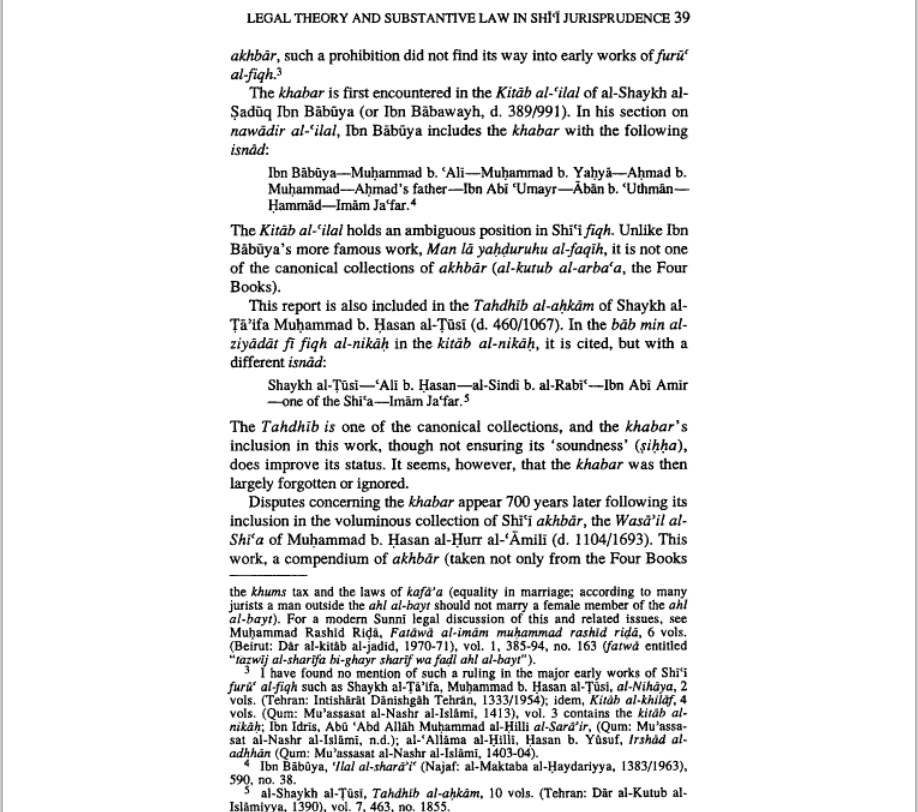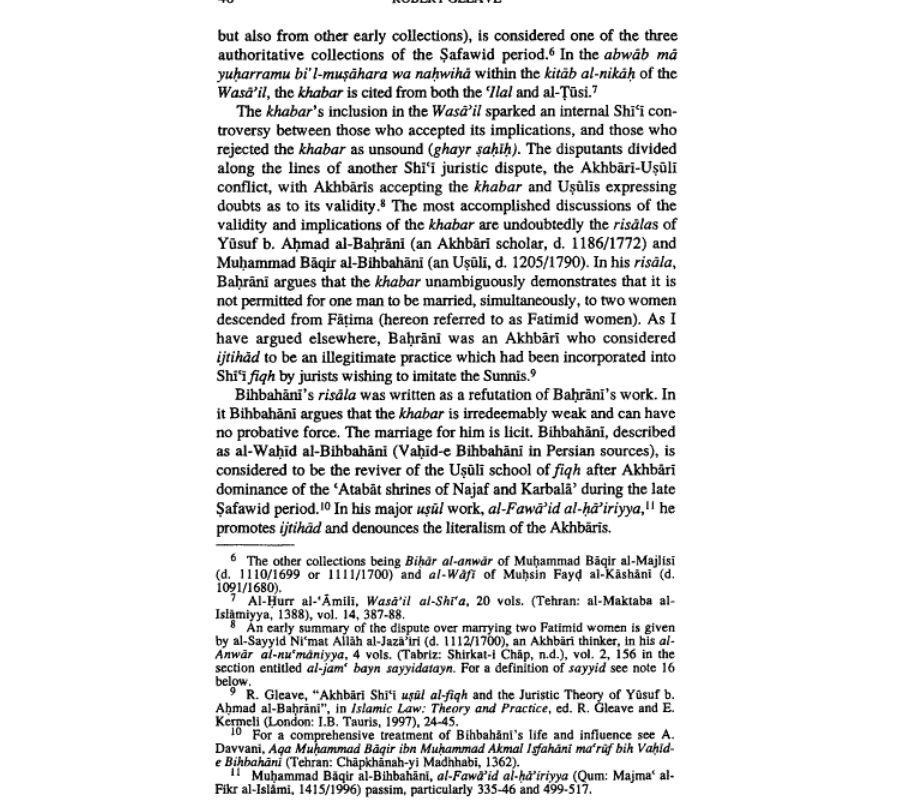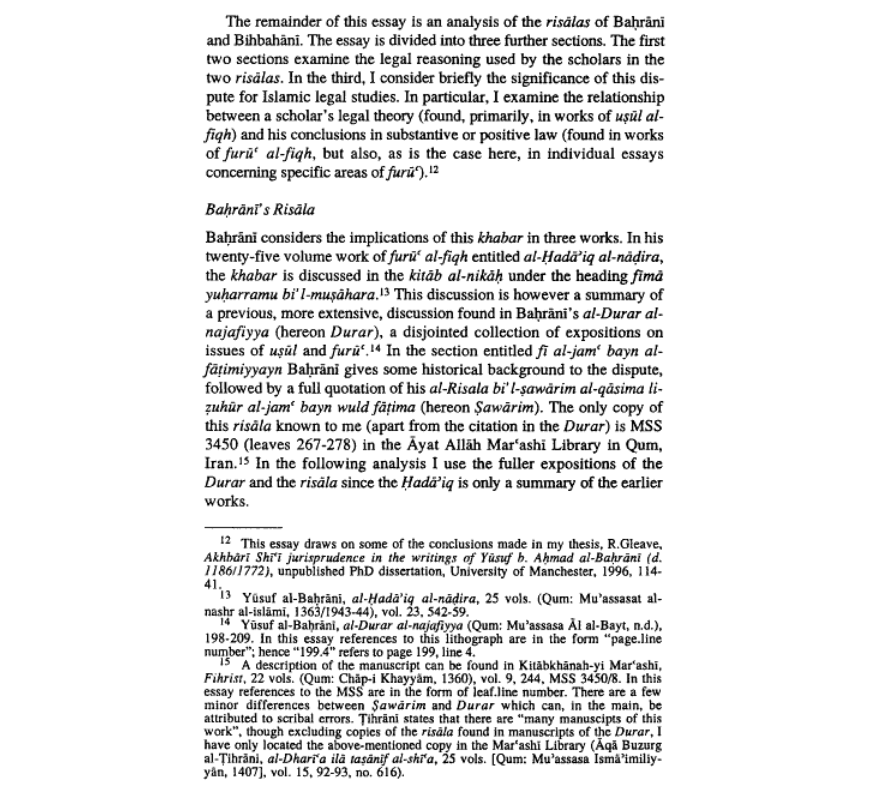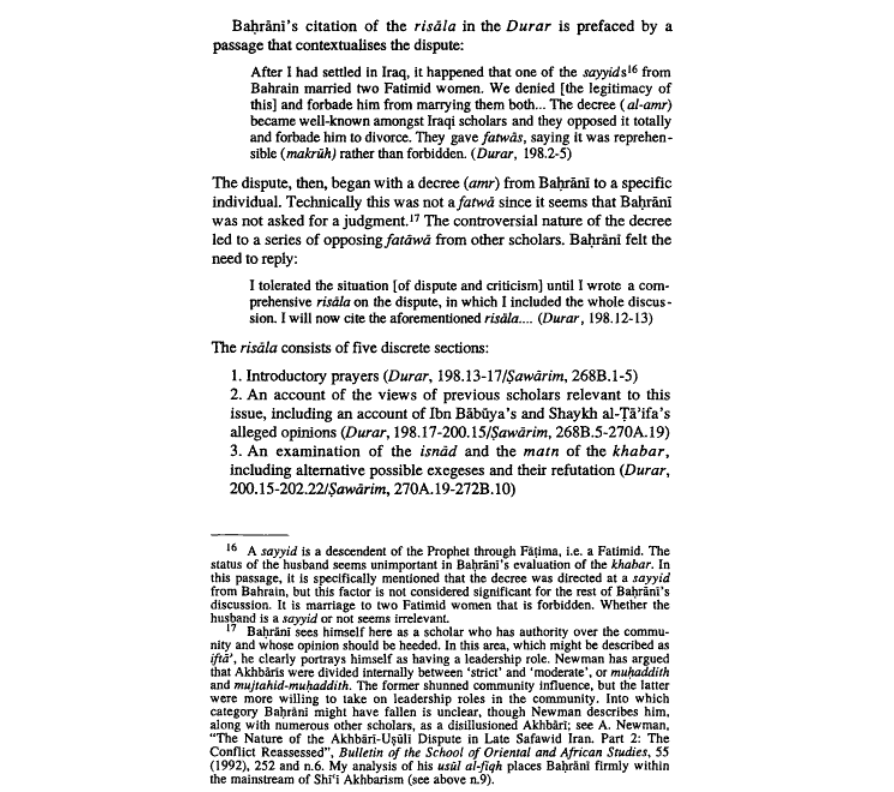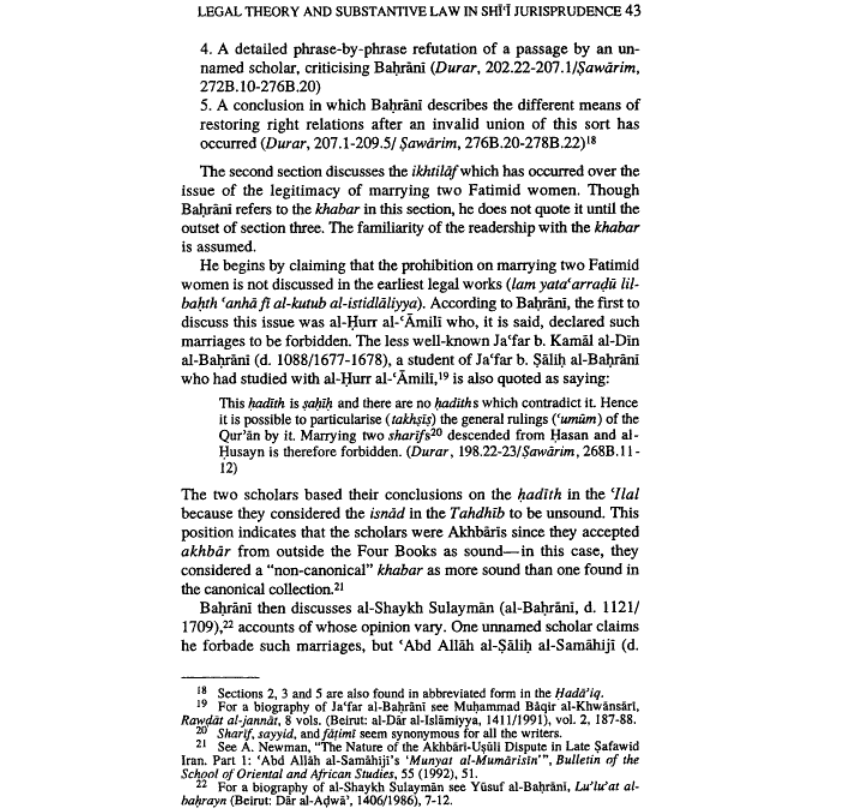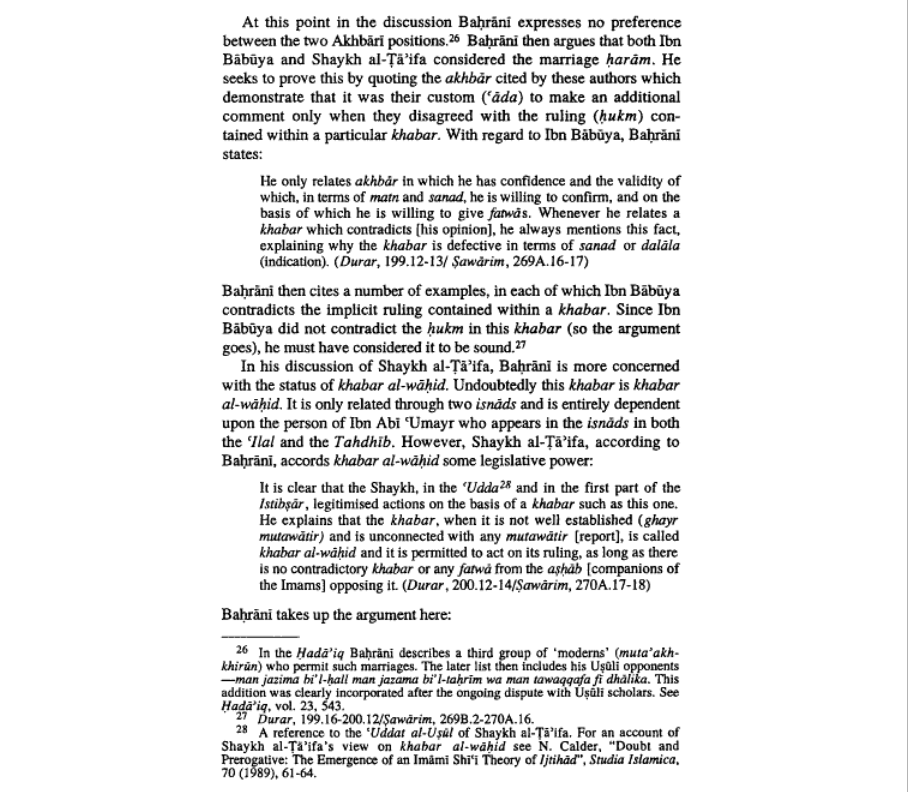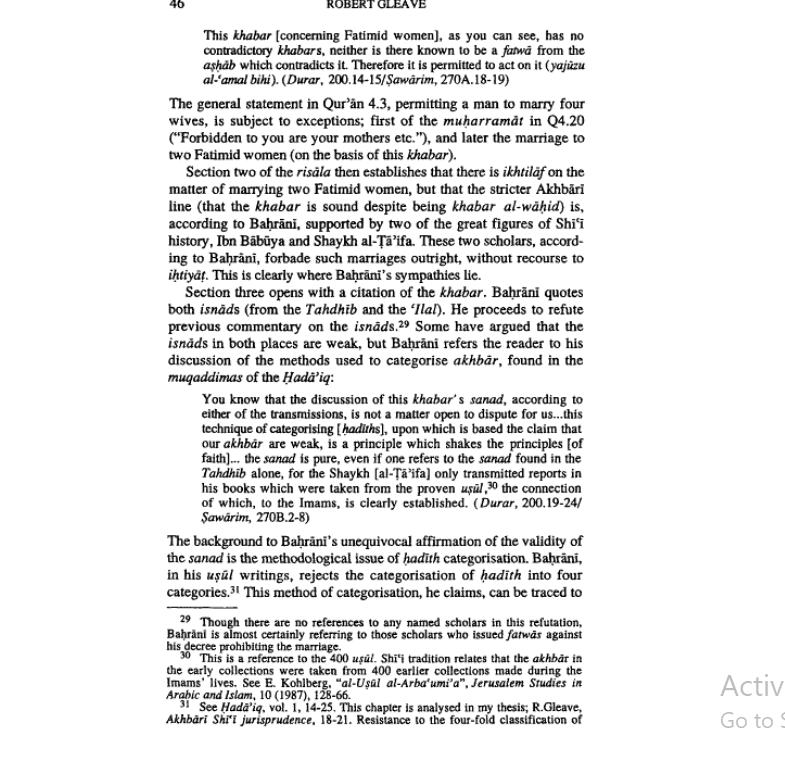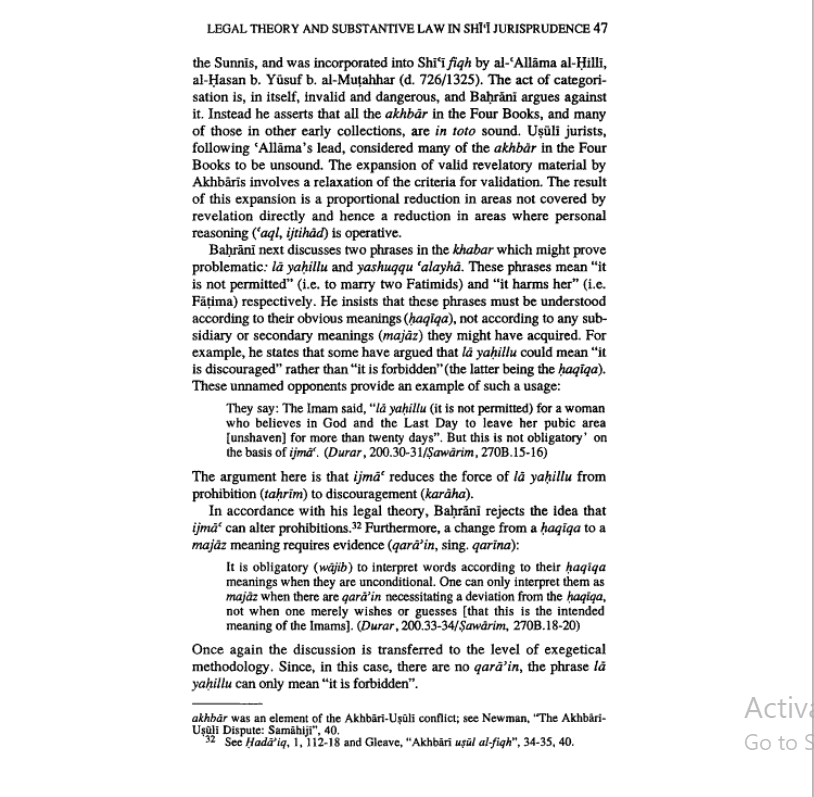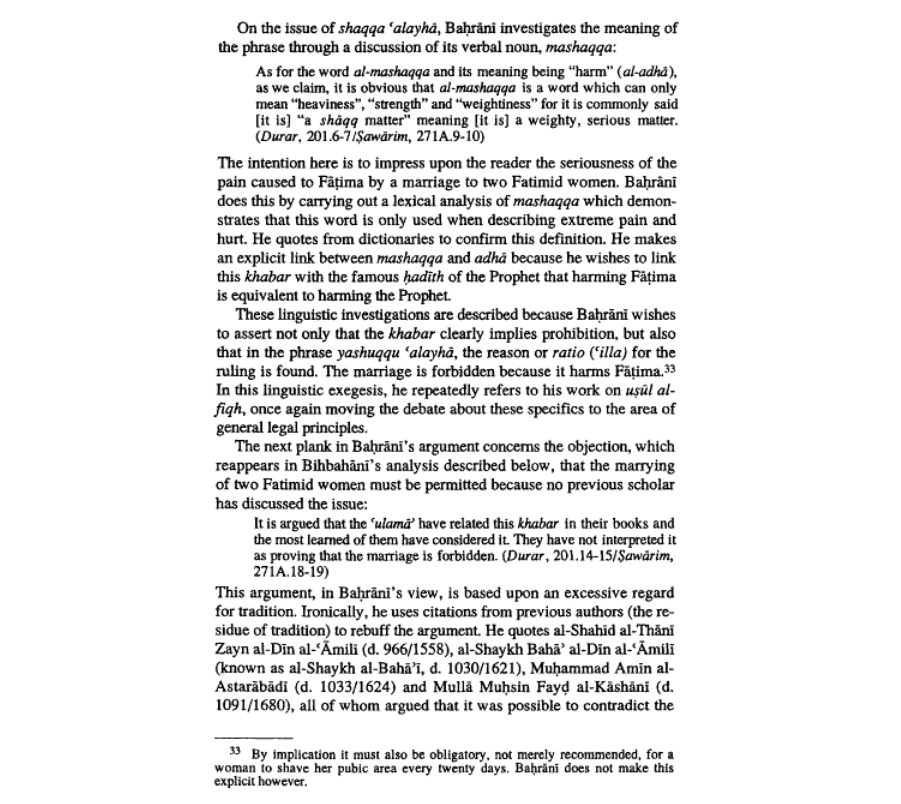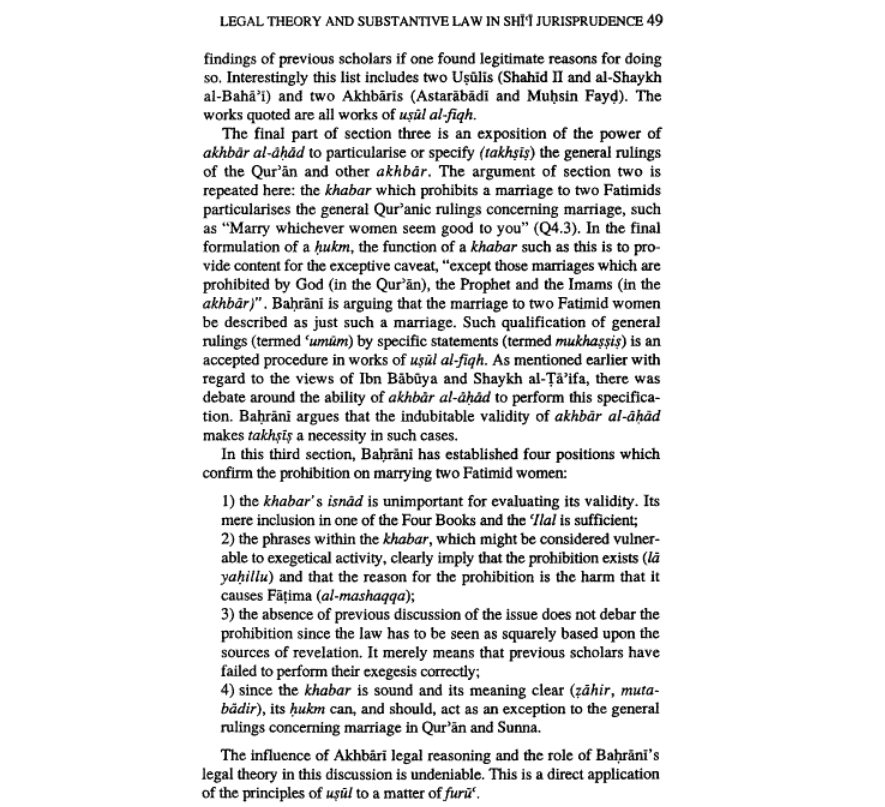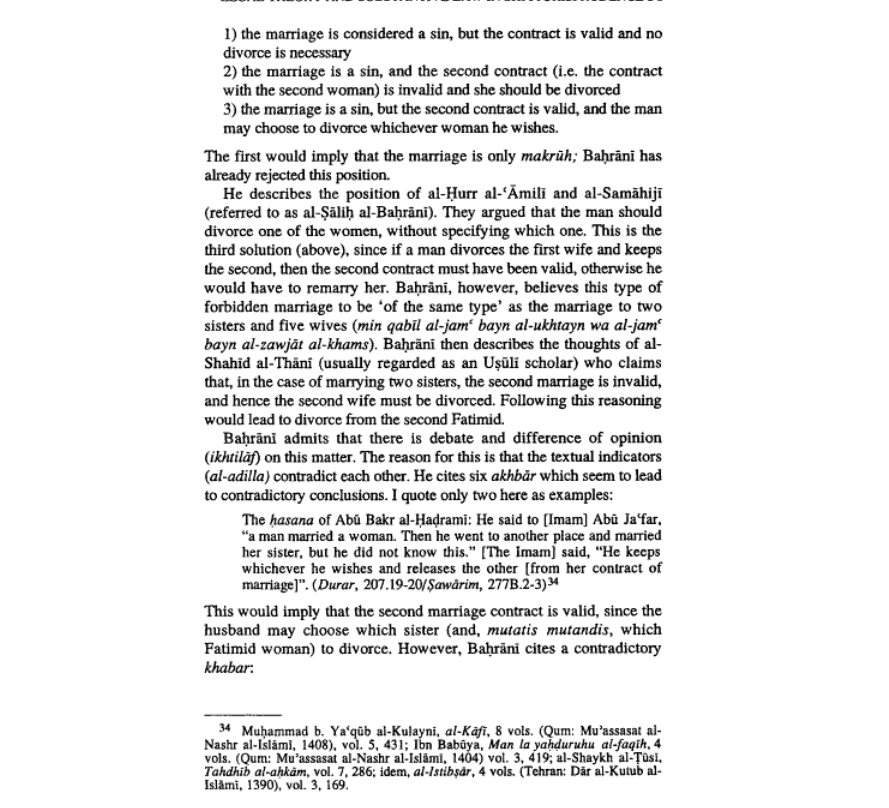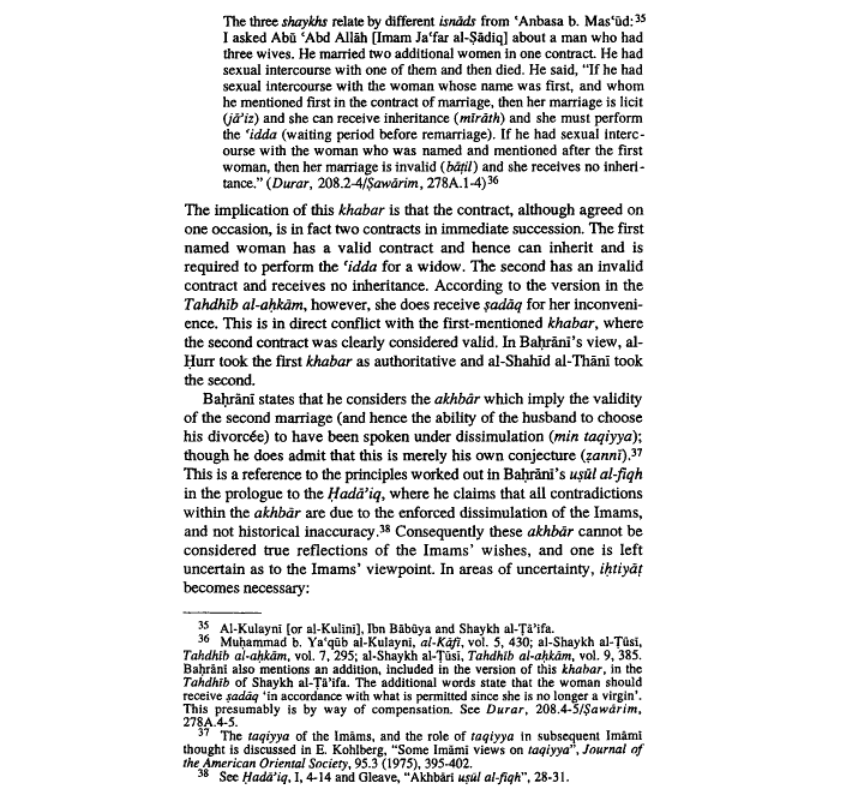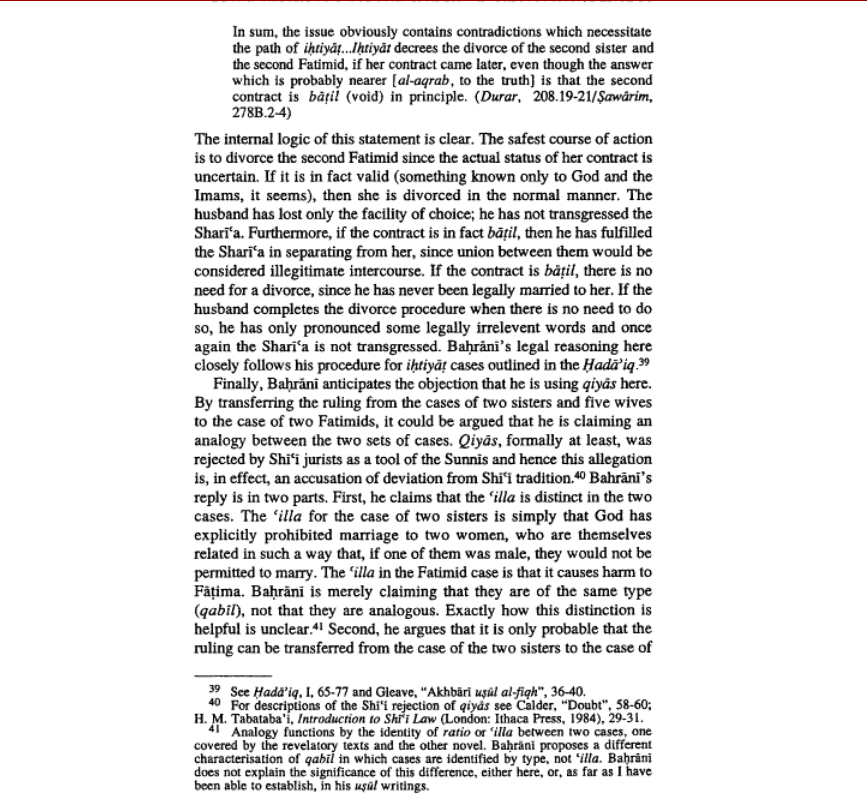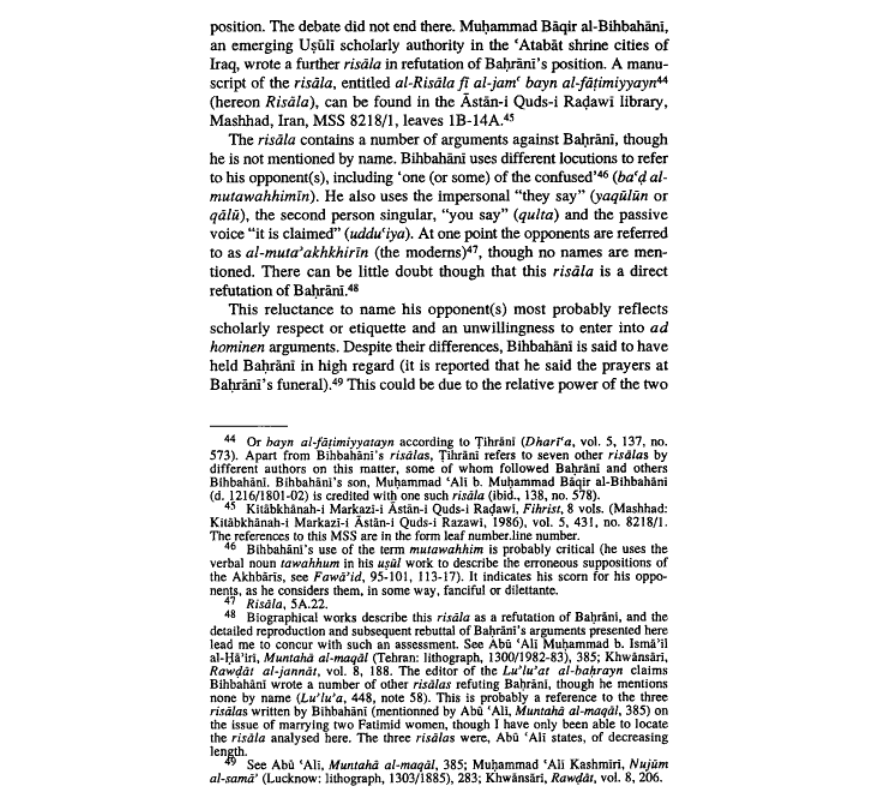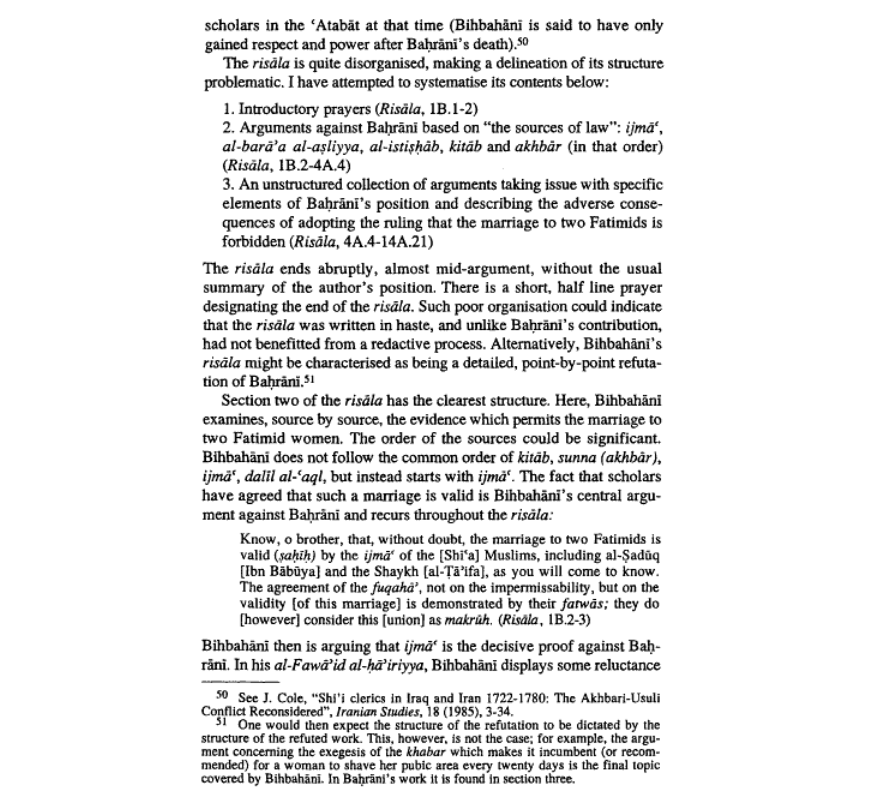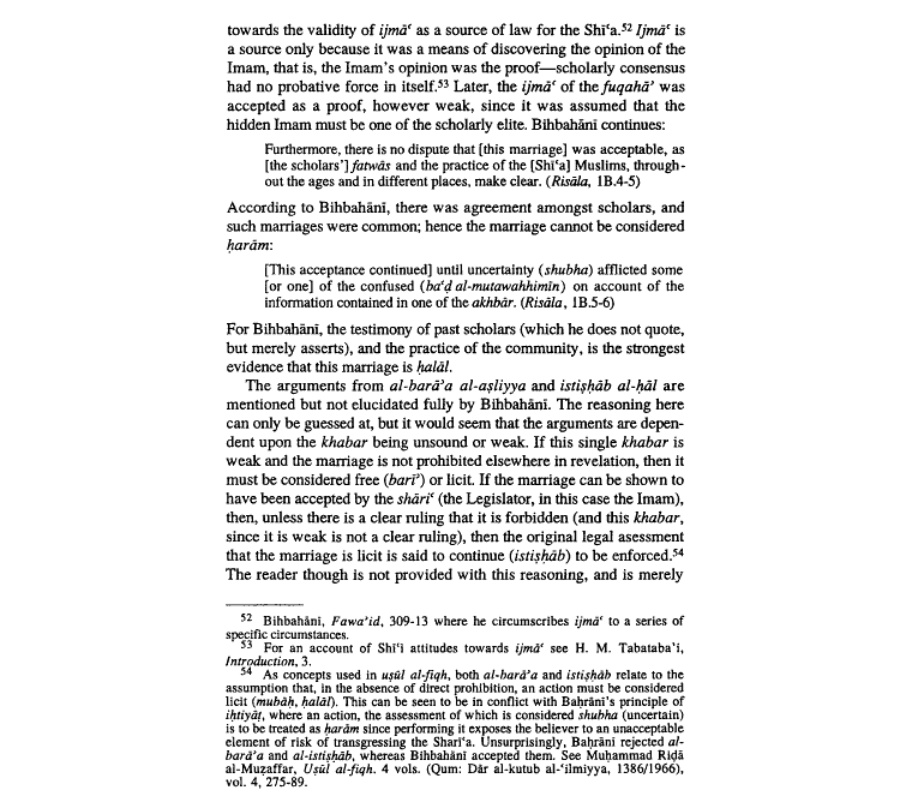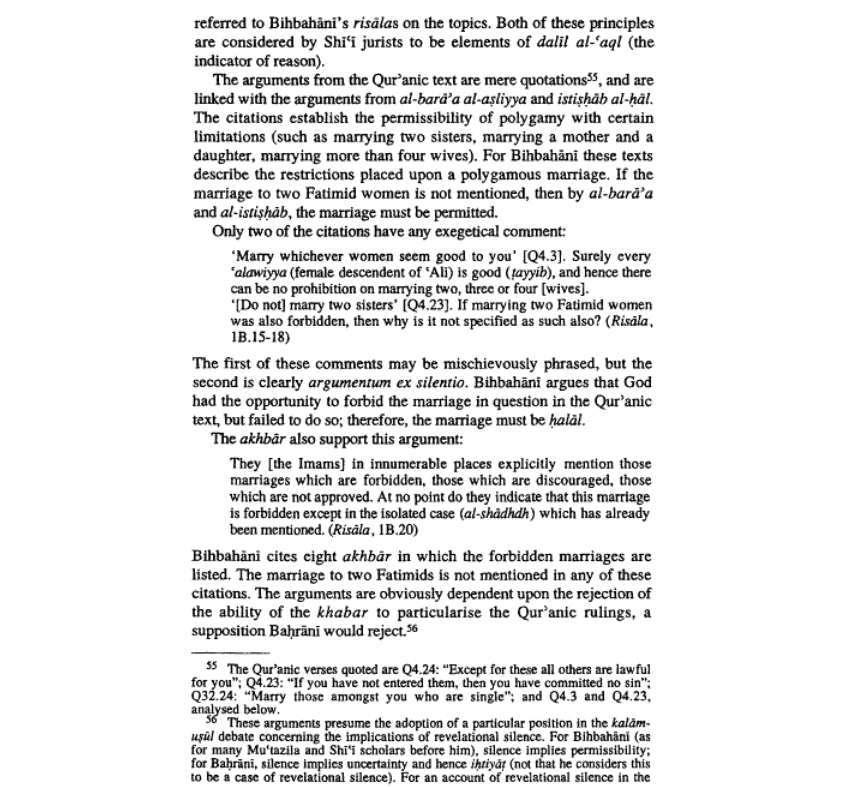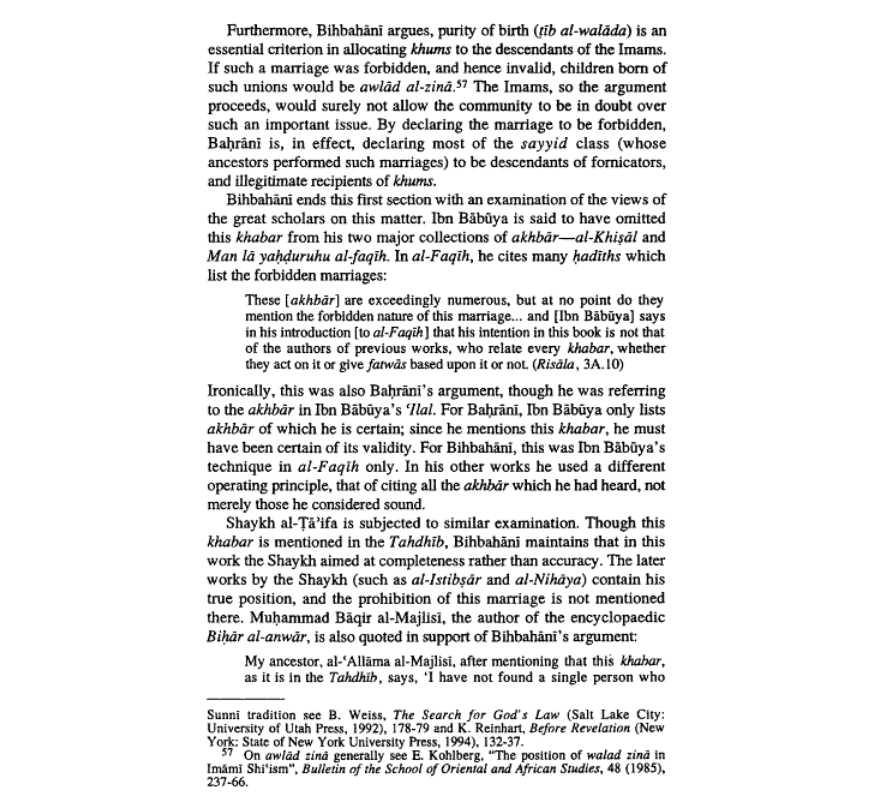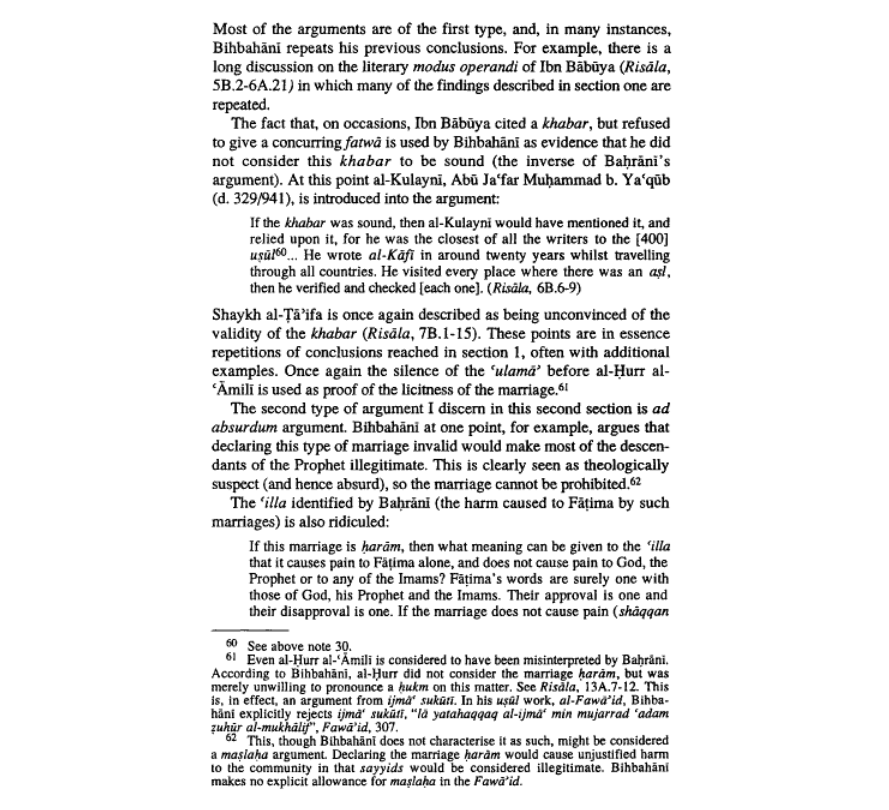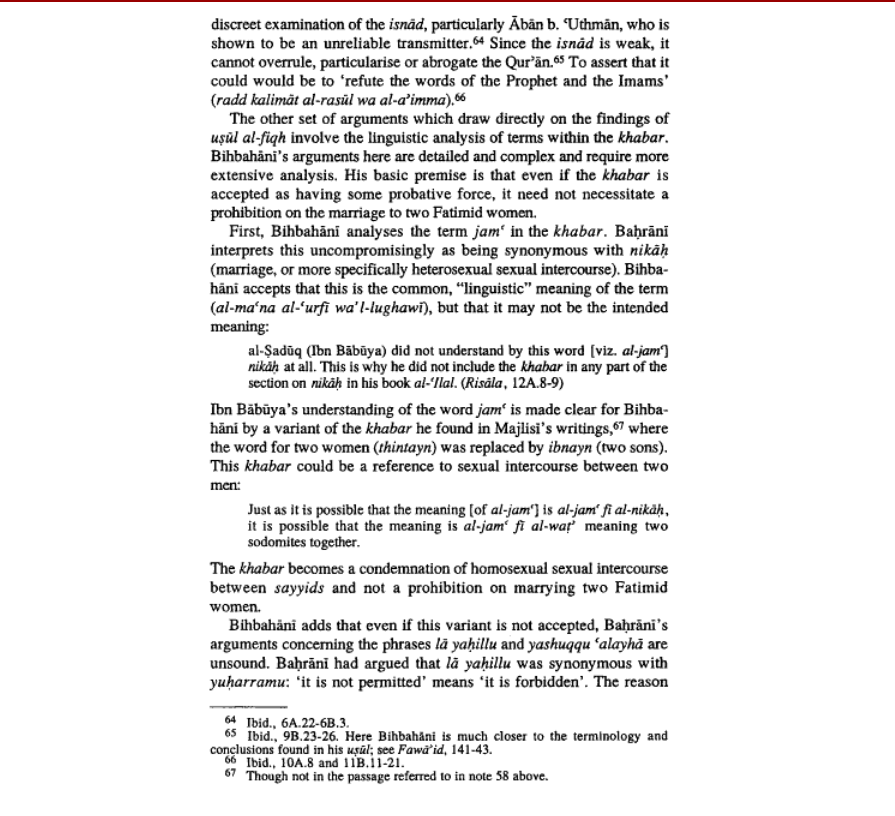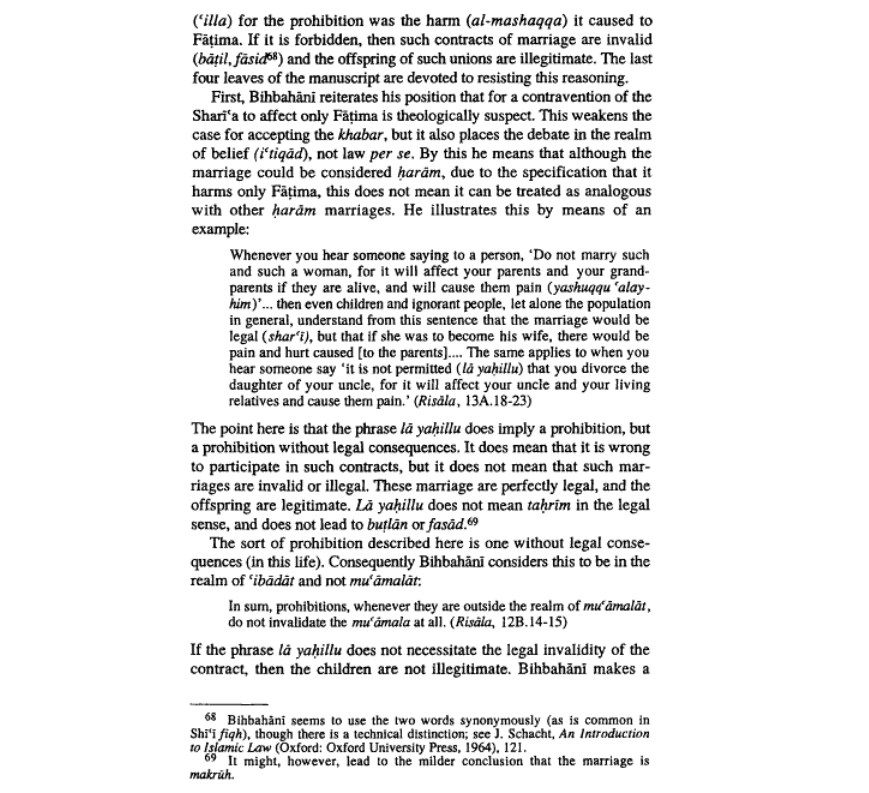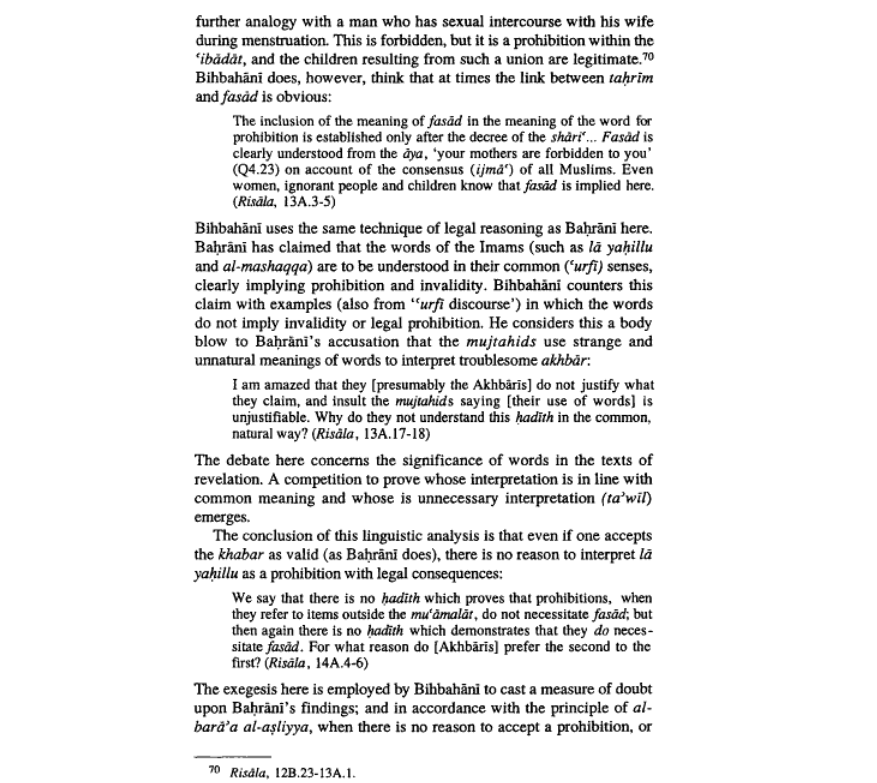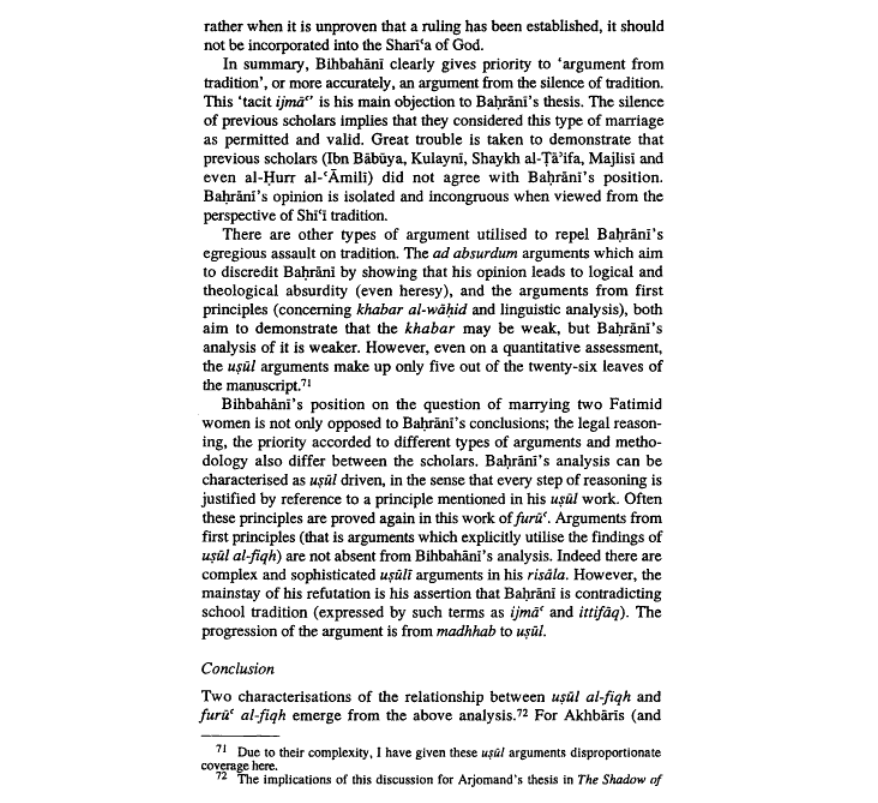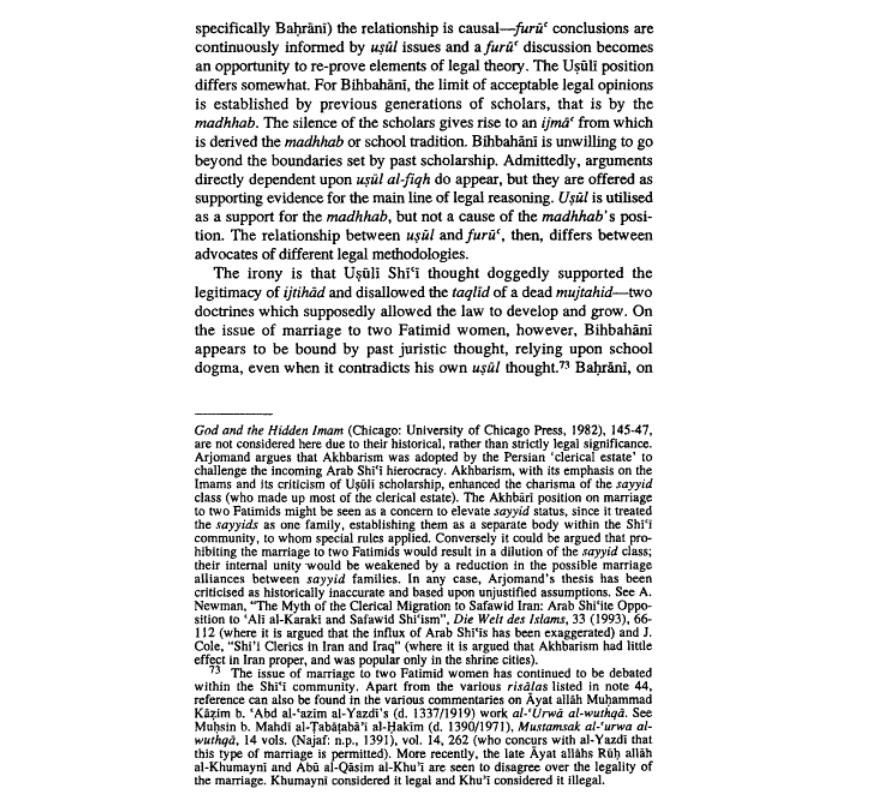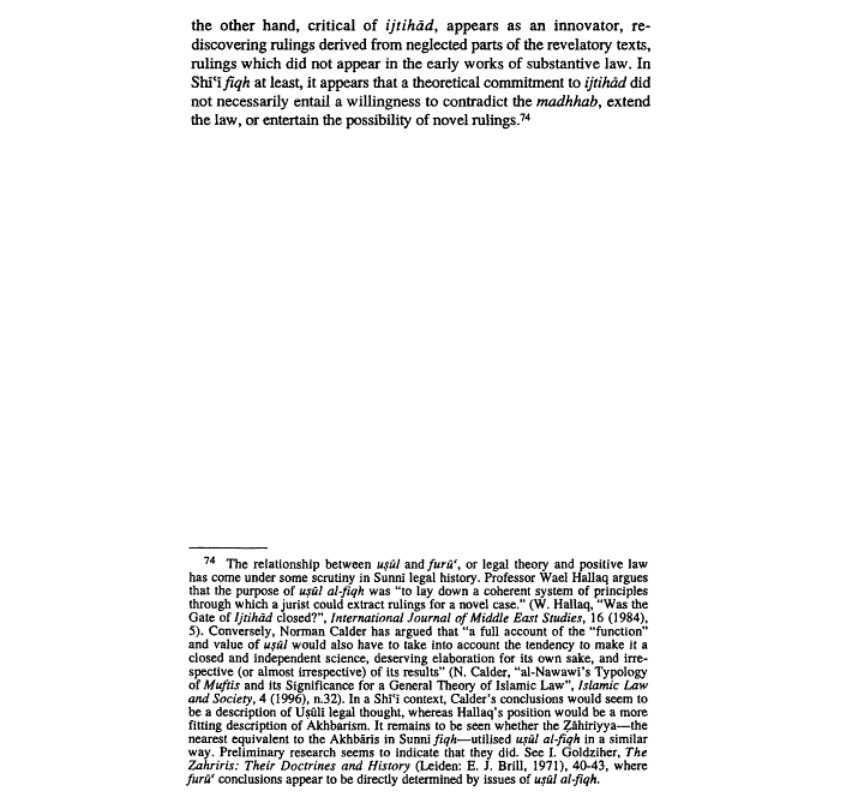In this essay, the writer examines one area of substantive law (furū’ al-flqh) which figured prominently in the Akhbārī-Uṣūlī dispute in Shī̒̒’ī legal history: the legality of the marriage of one man to two women descended from the daughter of the Prophet, Fāṭima.
In this essay, the writer examines one area of substantive law (furū’ al-flqh) which figured prominently in the Akhbārī-Uṣūlī dispute in Shī̒̒’ī legal history: the legality of the marriage of one man to two women descended from the daughter of the Prophet, Fāṭima. Through an analysis of two risālas on this issue, one by an Akhbārī and the other by an Uṣūlī, the writer aims to demonstrate that the relationship between Uṣūl alfiqh and substantive law in the Akhbārī school differed from that in the Uṣūlī school, and that this difference was not due to their two different legal theories alone, but stems from two divergent conceptions of the function of legal theory and its role in the derivation of legal rulings.
Bibliographic Information
Title: Marrying Fatimid Women: Legal Theory and Substantive Law In Shī’ī Jurisprudence
Author: Robert Gleave
Published in: Islamic Law and Society, Vol. 6, No. 1 (1999), pp. 38-68
Language: English
Length: 31 pages
 Ijtihad Network Being Wise and Faithful Muslim in the Contemporary World
Ijtihad Network Being Wise and Faithful Muslim in the Contemporary World
